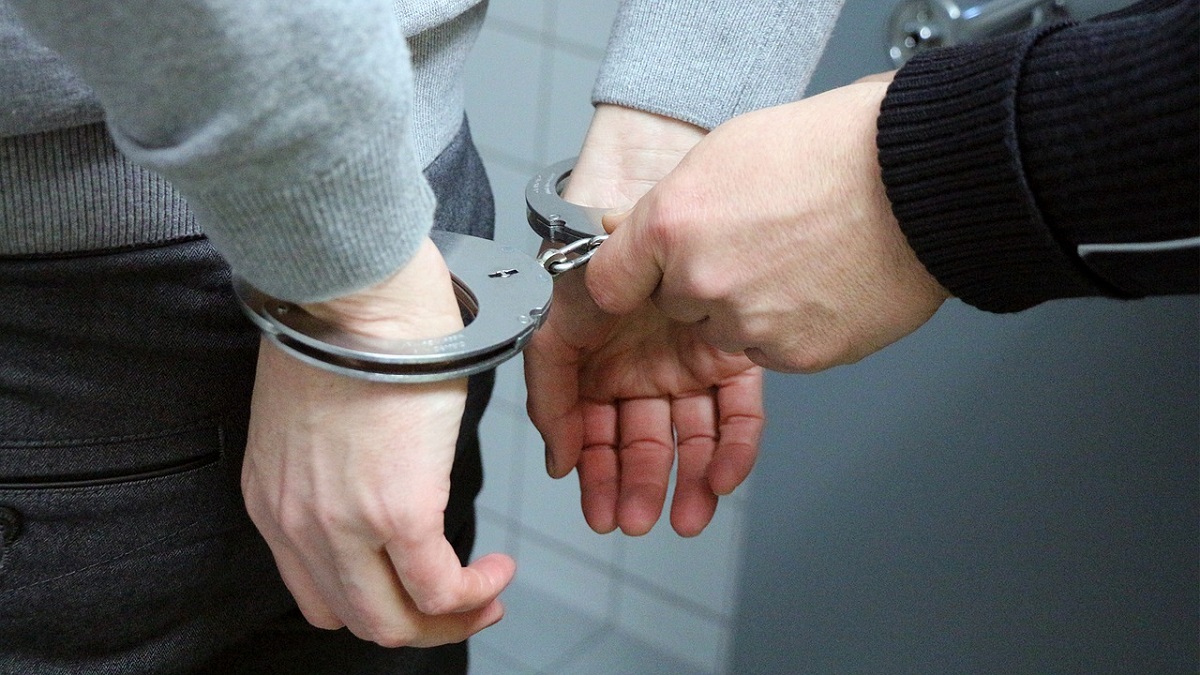
04 Oct Cocaine Possession Laws In Georgia: What You Need To Know
Table of Content
As you most likely know, or should know, cocaine is a highly dangerous and addictive drug. When you make the decision to consume cocaine, not only do you need to worry about how your physical and mental health can be affected, but you should also be concerned with the legal ramifications.
Cocaine is illegal in all 50 states—including Georgia. If caught with the substance, a myriad of legal ramifications can occur, affecting the individual’s future.
The Drug Enforcement Agency (DEA) has classified cocaine as a Schedule II drug in the United States, in large part, due to the fact that cocaine greatly affects the brain and is highly addictive. Therefore, if you get caught with the powdery substance, you could find yourself in a lot of trouble.
This article will discuss drug possession laws in Georgia, particularly the legal consequences of having cocaine, as well as how the body acts when cocaine is injected, and finally, how to seek help and treatment for cocaine.
The Dangers of Cocaine
It goes without saying that cocaine is a dangerous drug. Whether you are overly familiar with the narcotic or have just heard of it in passing, chances are you still know that it has the ability to cause great harm.
Specifically, cocaine is processed from the coca plant, and is considered to be a highly addictive stimulant creates a feeling of excitement throughout the body, generally causing the user to have more energy than normal. In short, it affects the central nervous system, and if abused regularly enough, can cause irreversible damage to the inner and outer body.
Cocaine, or coke, can be referred to a variety of names on the street, such as blow, white, snow white, powder, white powder, or fluff. Regardless of what the drug is called, it is more often than not inhaled through the nose or injected via a needle. When snorted or injected, coke is usually found in powder form. However, when smoked, cocaine is in the form of a rock, known as crack cocaine.
Because cocaine is so addictive, one of the main concerns associated with the drug is the addiction. Just a few health conditions or symptoms that can arise from a cocaine dependency include insomnia, mood swings, cardiovascular damage, mental health issues, depression, hallucinations, paranoia, and more.
Cocaine abuse can also put an individual at risk for more serious illnesses and health issues, such as heart attack, increased blood pressure, lung damage, ulcers, and strokes. The longer a person uses cocaine, the more addicted they become, requiring greater amounts to get high. This, of course, only results in further damage to their body and health.
Unfortunately, when an individual chooses to use and abuse cocaine, not only does he or she need to worry about their health being negatively affected, but also what kind of trouble they can get into with the federal law.
Cocaine Possession Laws
As mentioned, in the State of Georgia (and everywhere else in America), cocaine is illegal. Therefore, if you are caught possessing the substance, you could face a variety of penalties, depending on the amount, your specific location, and your intent to distribute.
You should understand that Georgia has strict drug trafficking and possession laws, especially when the drug in question is cocaine. It is a crime to possess, sell, manufacture, or traffic cocaine. As stated above, each crime carries with it its own penalty.
Again, cocaine is a Schedule II drug, meaning it is in the same category as methamphetamine, crack cocaine, morphine, opium, and methadone. The federal law is blatant: It is illegal to have any connection with cocaine—purchase, possess, use.
In order for an individual to get convicted of cocaine possession, the State must prove that he or she is guilty beyond a reasonable doubt. Specifically, the State must show the accused actually had the cocaine in his or her possession during the time of the arrest for an “actual possession” charge.
There is also a charge known as a “constructive charge.” This charge refers to an individual who is not in actual possession of the substance but has both the power and intention to exercise dominion or control of it. In order to prove this type of conviction, the State has to show a link between the suspect in question and the cocaine.
Penalties for Breaking the Law
If caught with cocaine, the penalty will be determined by how much of the substance is found.
For example, if an individual is found with less than 28 grams of cocaine, then he or she could serve between 5 to 30 years in prison. This crime is a felony. If an additional offense occurs, the accused could face another 10 to 40 years in prison—as well as life. Once you are charged with a felony offense, it will be extremely difficult to find a job and/or gain credit. Unfortunately, this charge will follow you.
Each state is different, and in Georgia, there is the possibility for conditional release or diversion programs for those who are experiencing their first criminal prosecution. A conditional release is similar to probation, during which the accused will have specific conditions set by the judge that he or she must satisfy.
Though not always, in many cases, a judge will be more lenient and likely to offer a conditional release ruling if this is an individual’s first drug offense and the case is somewhat minor. If this does happen, the person could be on probation for up to five years and will have to participate in drug rehabilitation programs and/or medical treatments. Only after the conditions have been successfully met will the proceedings be dismissed.
Regardless of the offense or ruling, all drug possession cases in the State of Georgia will result in a suspension of driver’s license. For first time offenders, the suspension will most likely last for six months. For a second offense, the suspension will last for at least a year, while a third offense will result in a minimum two-year suspension.
The Importance of Legal Assistance
Even if you broke the law and were caught possessing, using, or selling cocaine, it is imperative to seek out legal assistance. An experienced drug lawyer will not only be well versed in the crime and charge but also know how to offer a proper defense. Most firms offer a free consultation. Therefore, shop around—read reviews, schedule meetings, and hire a lawyer that you connect with and will best suit your needs.
Only a lawyer can properly defend you in your case and offer a legitimate defense as to why you were found in possession of cocaine.
One example of a defense is an unwitting possession, which states that you honestly had no idea you were in possession of the illegal drug. Perhaps you were delivering a package for a friend, unaware of its contents, or someone slipped the drugs into your bag or car without your knowledge.
If the police conducted an illegal stop, detention, or search which lead to the discovery of cocaine, your lawyer could potentially get the case thrown out of court. This is due to the fact that a police officer must have a Constitutional basis for stopping you and then searching for your property.
An attorney can also argue “lack of possession.” This implies that even though the accused was in the vicinity of the cocaine, that he or she was completely unaware of its presence.
Further, witness statements, videos, pictures, expert testimonies, etc. can all aid an individual’s case and be used in court to help get the charge of possession dropped or dismissed.
A good lawyer will also educate you on what defines a bad defense, or a defense that will not hold up in a court of law. Bottom line: If you are found with cocaine, you could face some serious trouble or even jail time, and therefore should have a professional on your side to assist you.
Seeking Treatment for Cocaine Abuse
Regardless if you have been arrested or not, if you suffer from cocaine addiction, you should know that it is never too late to seek treatment. Even if you have a felony possession or have served jail time, there are options for everyone to detox and reform from his or her addiction.
Yet, in order to successfully recover from a drug addiction, the individual has to want to recovery. He or she must first recognize there is a problem, and then dedicate themselves to fixing it. The next step is to detox.
If long-term care is needed, meaning the individual has a long relationship with cocaine use and abuse, then it is likely he or she will need to find a rehabilitation center that offers a 30, 60, even 90-day stay. During this time, the chemicals will be forced out of the person’s system, allowing the body to repair itself. Specifically, rehab supports a healthy life, teaching you how to move on and live without drugs.
If you come to the conclusion that you need or want rehab, it will be necessary to find a facility that suits your particular needs. Therefore, you will need to visit different places, meet the staff, read reviews, and if possible, speak with past patients. Different facilities will offer various treatments, and whether or not you have insurance will take effect, too. Though you should never let the price of rehab alter your decision to get help—there is help out there for everyone.
How to Avoid Drug Addiction
It may seem easier said than done, but there are ways to potentially avoid drug use, abuse, and addiction. Due to the fact that cocaine is so addictive, it is imperative to not even experiment with the drug, as doing so could lead to an addiction.
Further, the following steps could help guarantee that you avoid drug addiction altogether, whether the drug in question is alcohol, cocaine, or some other sort of narcotic:
-
- Just say NO—regardless who is offering the drug or what the circumstances may be, never accept it
-
- Be mindful of who you surround yourself with
-
- If you are feeling stressed about work, school, or life, manage that stress with exercise or meditation
-
- Focus on relationships that are strong and healthy, that do not center around drugs
-
- Always keep your goals in mind and at the forefront
-
- If you start to become curious about drugs, seek help
- Be kind to yourself, because mistakes do happen
Never Too Late for Help
Though this article has detailed how to get help, it bears acknowledging (and repeating) that it is never too late to get help. That is one of the biggest misconceptions when it comes to drug use—any type of drug use: users and abusers cannot reform. However, the can and they do.
Unfortunately, society does not always promote change or the idea of having a second chance. Yet, you are entitled to one. Further, if you, yourself, do not suffer from drug addiction, but someone you know, there are tools that can assist you in offering your support.
You first need to understand that you cannot fix the problem, but you can definitely address it. Try not to blame or accuse, but instead have an open conversation about the situation at hand. Further, if you can provide some education on the addiction, and how it is getting worse or how help is available, that may convince the individual to seek treatment.
Depending on the individual and how bad the addiction is, an intervention may need to take place. For this, you will need to surround the person who has the drug problem with family, friends, and other loved ones. It is important to have a face-to-face meeting to express concerns and encourage change and healing.
Get Help Today
Do you want to get help for your addiction problem? There is no time like the present. If you are ready to make a positive change in your life or know someone who is, start today—right now. You can turn your life around and make a change.
Sources:
“Georgia Cocaine Laws.” FindLaw. 4 March 2019. https://statelaws.findlaw.com/georgia-law/georgia-cocaine-laws.html
“Georgia Drug Possession Laws.” HG.org. 4 March 2019. https://statelaws.findlaw.com/georgia-law/georgia-cocaine-laws.html
“Possession of Cocaine.” Ghanayem & Rayasam. 4 March 2019. https://www.gratlantalaw.com/possession-of-cocaine-atlanta.html






No Comments